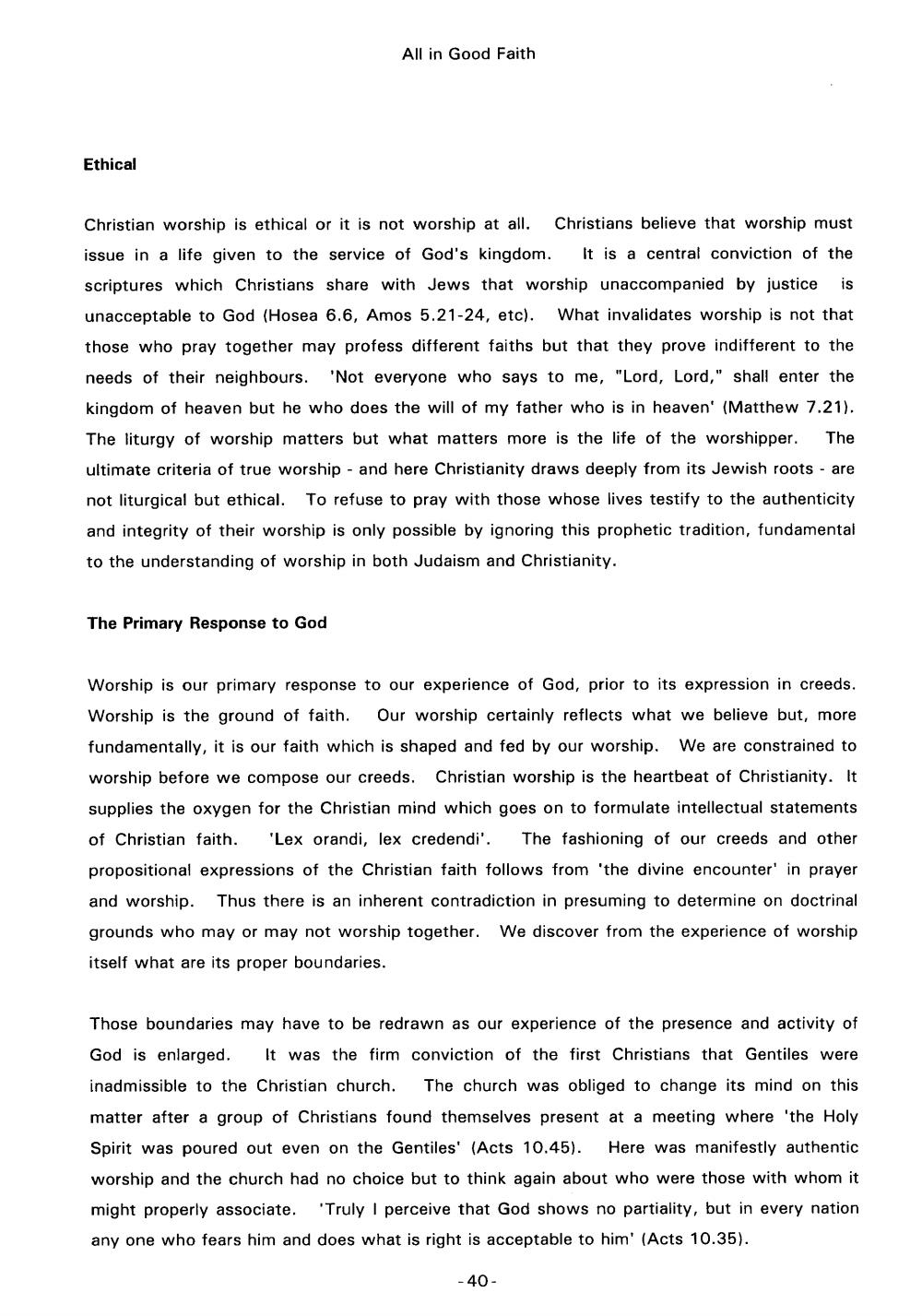________________
All in Good Faith
Ethical
Christian worship is ethical or it is not worship at all. Christians believe that worship must issue in a life given to the service of God's Kingdom. It is a central conviction of the scriptures which Christians share with Jews that worship unaccompanied by justice is unacceptable to God (Hosea 6.6, Amos 5.21-24, etc). What invalidates worship is not that those who pray together may profess different faiths but that they prove indifferent to the needs of their neighbours. 'Not everyone who says to me, "Lord, Lord," shall enter the kingdom of heaven but he who does the will of my father who is in heaven' (Matthew 7.21). The liturgy of worship matters but what matters more is the life of the worshipper. The ultimate criteria of true worship - and here Christianity draws deeply from its Jewish roots - are not liturgical but ethical. To refuse to pray with those whose lives testify to the authenticity and integrity of their worship is only possible by ignoring this prophetic tradition, fundamental to the understanding of worship in both Judaism and Christianity.
The Primary Response to God
Worship is our primary response to our experience of God, prior to its expression in creeds. Worship is the ground of faith. Our worship certainly reflects what we believe but, more fundamentally, it is our faith which is shaped and fed by our worship. We are constrained to worship before we compose our creeds. Christian worship is the heartbeat of Christianity. It supplies the oxygen for the Christian mind which goes on to formulate intellectual statements of Christian faith. "Lex orandi, lex credendi'. The fashioning of our creeds and other propositional expressions of the Christian faith follows from the divine encounter' in prayer and worship. Thus there is an inherent contradiction in presuming to determine on doctrinal grounds who may or may not worship together. We discover from the experience of worship itself what are its proper boundaries.
Those boundaries may have to be redrawn as our experience of the presence and activity of God is enlarged. It was the firm conviction of the first Christians that Gentiles were inadmissible to the Christian church. The church was obliged to change its mind on this matter after a group of Christians found themselves present at a meeting where 'the Holy Spirit was poured out even on the Gentiles' (Acts 10.45). Here was manifestly authentic worship and the church had no choice but to think again about who were those with whom it might properly associate. 'Truly I perceive that God shows no partiality, but in every nation any one who fears him and does what is right is acceptable to him! (Acts 10.35).
-40




